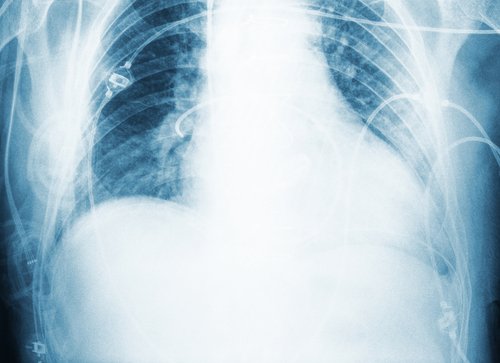New Surgery Simulator May Improve Lives of Canadians with Chronic Thromboembolic Pulmonary Hypertension

The new pulmonary endarterectomy (PEA) surgery simulator — a 3D device developed by the National Research Council of Canada with support from Bayer — could potentially improve the lives of thousands of Canadians with chronic thromboembolic pulmonary hypertension (CTEPH).
The first-of-its-kind simulator will allow surgeons to train more efficiently for surgery to treat CTEPH, a rare and debilitating disease caused by chronic blood clots within the lungs, and a leading cause of severe pulmonary hypertension (PH) linked to significant morbidity and mortality.
To date, only three centers in Canada perform PEA surgery, which involves a “heart-lung bypass” machine and involves removing old blood clots from pulmonary arteries in the lungs. In PEA, the surgeon opens the pulmonary arteries and removes the artery lining to clear obstructions.
Every year, some 600,000 Americans suffer an acute pulmonary embolic event, and an estimated 500 to 2,500 new CTEPH cases are diagnosed annually. In Canada, about 5,000 people have been diagnosed with PH, but as many as 10,000 may be affected by the condition.
About 80 percent of CTEPH patients are eligible for PEA, yet only a handful of surgeons in Canada are able to perform the operation. The new simulator is now operating at Toronto Western Hospital, where surgical residents can train for this technically complex surgery.
“The simulator may reduce the training time for residents by up to six months,” Marc de Perrot, a thoracic surgeon at UHN–Toronto General Hospital, said in a press release. De Perrot has worked in partnership with NRC and Bayer to advance the simulator.
This 3D simulator will provide surgeons with more “practice hours” to fine-tune their ability to perform the PEA surgery, which will lead to better outcomes for patients with CTEPH — the only type of PH that can be cured.
“Bayer is honored to collaborate with the National Research Council to develop this innovative surgery simulator,” said Alok Kanti, president and CEO of Bayer Canada. “Bayer is dedicated to delivering innovative solutions to improve the quality of life for Canadians, and this surgery simulator will do just that for many Canadians with CTEPH.”
Added Roman Szumski, vice-president of life sciences at the National Research Council: “Our expertise makes us a unique collaborator for companies developing simulators for doctors and healthcare practitioners to perform complex and challenging medical techniques.”







